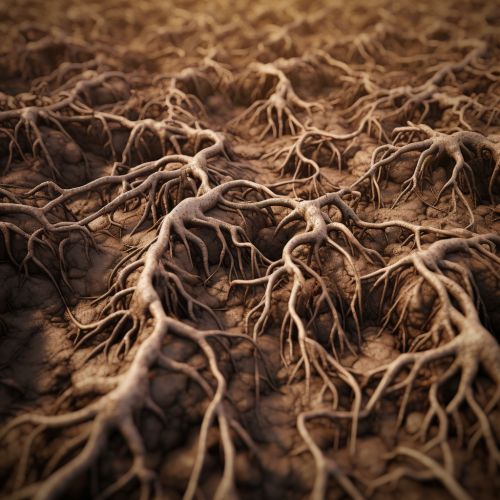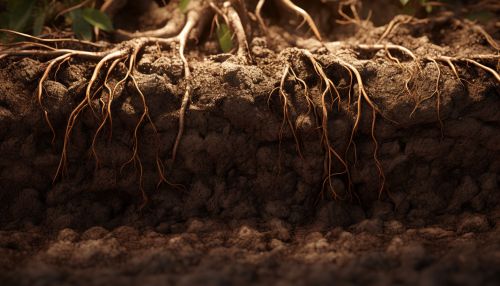Rhizosphere
Introduction
The Rhizosphere is a zone of soil that surrounds plant roots and is the place where many complex interactions between plants, soil, and microorganisms occur. This zone is characterized by intense biological and chemical activity, and its composition and function can greatly influence plant health and productivity.
Rhizosphere Characteristics
The rhizosphere is typically more nutrient-rich than the bulk soil, due to the exudation of organic compounds from the roots. These exudates can include sugars, amino acids, and other organic acids, which can stimulate the growth of soil microorganisms. The rhizosphere is also characterized by a higher microbial biomass and activity compared to the bulk soil, due to the availability of these root exudates.
Rhizosphere Microbiology
The rhizosphere hosts a diverse array of microorganisms, including bacteria, fungi, and other microbes. These organisms interact with the plant roots and with each other, forming complex ecological networks. Some of these interactions can be beneficial to the plant, such as those involving mycorrhizal fungi or nitrogen-fixing bacteria. Other interactions can be harmful, such as those involving plant pathogens.


Plant-Microbe Interactions in the Rhizosphere
Plants can influence the microbial community in the rhizosphere through the exudation of specific compounds. For example, some plants can exude compounds that attract beneficial microbes, while others can exude compounds that inhibit the growth of harmful microbes. In turn, the microbes in the rhizosphere can influence plant health and growth. For example, mycorrhizal fungi can enhance plant nutrient uptake, while plant pathogens can cause disease.
Rhizosphere and Plant Health
The rhizosphere plays a crucial role in plant health. The beneficial microbes in the rhizosphere can help to protect the plant from pathogens, enhance nutrient uptake, and promote plant growth. On the other hand, the presence of plant pathogens in the rhizosphere can lead to plant disease. Therefore, understanding the rhizosphere and its microbial community is important for sustainable agriculture and plant disease management.
Rhizosphere and Soil Health
The rhizosphere also plays a role in soil health. The activity of microbes in the rhizosphere can contribute to soil fertility, by cycling nutrients and decomposing organic matter. In addition, the rhizosphere can influence soil structure, as the growth of roots and the activity of microbes can lead to the formation of soil aggregates.
Rhizosphere Research
Research on the rhizosphere is a multidisciplinary field, involving soil science, plant science, microbiology, and ecology. Current research topics include the characterization of the microbial community in the rhizosphere, the study of plant-microbe interactions, and the development of strategies to manipulate the rhizosphere for sustainable agriculture.
